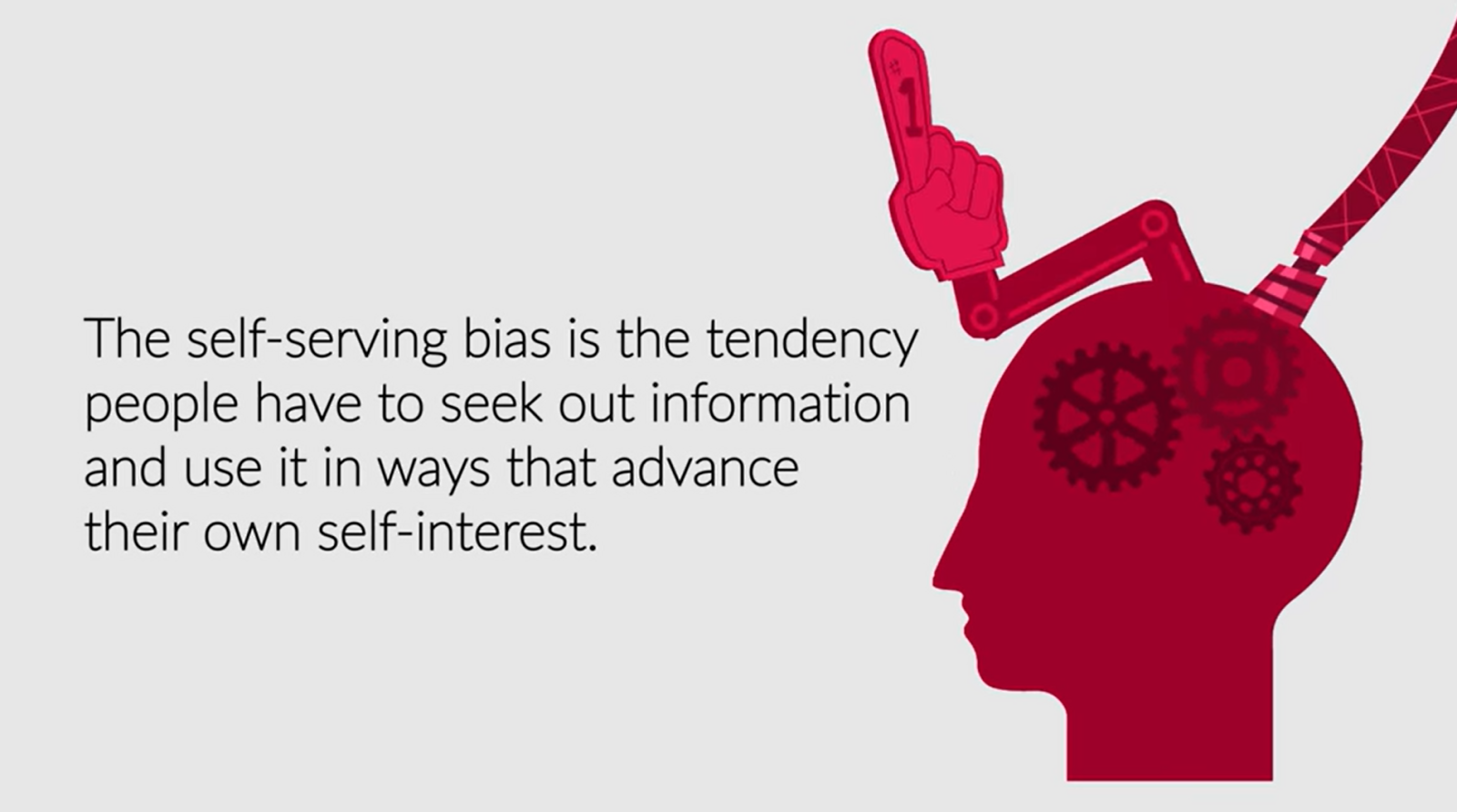Sometimes people tend to give themselves the “benefit of the doubt” when rationalizing their own behavior or performance, but they don't extend that same principle to others. For example, if a project we’re working on fails to meet its deadline, we may attribute the failure to something outside of our control, like “unexpected technical issues.” But, when a project is successful, we may believe our “leadership and vision” directly caused the success, without acknowledging other team members’ efforts.
This month's 1-minute video on "self-serving bias" shows how – even when we mean well – we can easily excuse our own bad actions but may judge others harshly.

Here are some ways we can work to actively overcome self-serving bias:
- Seek feedback from others: Actively seek feedback from colleagues with different backgrounds, experiences, and expertise. Resist the temptation to dismiss criticism or alternative viewpoints for both positive and negative outcomes.
- Give credit where credit is due: Recognize and acknowledge the contributions of others. Promoting a collaborative and supportive work environment can boost morale and strengthen team cohesion, which can lead to even greater success in the future.
- Use objective evaluations: To evaluate the success of a project or our performance, use objective criteria. Talk with others who can provide external perspectives and help you gain a more objective view of situations.
We encourage personal learning about these topics and want to help you make them a regular part of your conversations. There are free classes in UTLearn, as well as additional videos about business ethics on LinkedIn Learning and through Ethics Unwrapped.
As members of the UT community, we are all expected to uphold our University’s core values through integrity, honesty, trust, fairness, and respect toward peers and community. If you are facing a dilemma, consider talking about it with a friend, a supervisor or manager, the Ombuds Office, your local HR representative, or consult with us at University Risk and Compliance Services. Others may be able to help you see something you are missing.
If you think someone is behaving unethically or illegally, contact the Compliance and Ethics Hotline online or by phone at 877-507-7321 (English) and 800-216-1288 (Español). Anonymous reporting is available. Remember that UT Austin prohibits retaliation against anyone who raises a concern in good faith.

